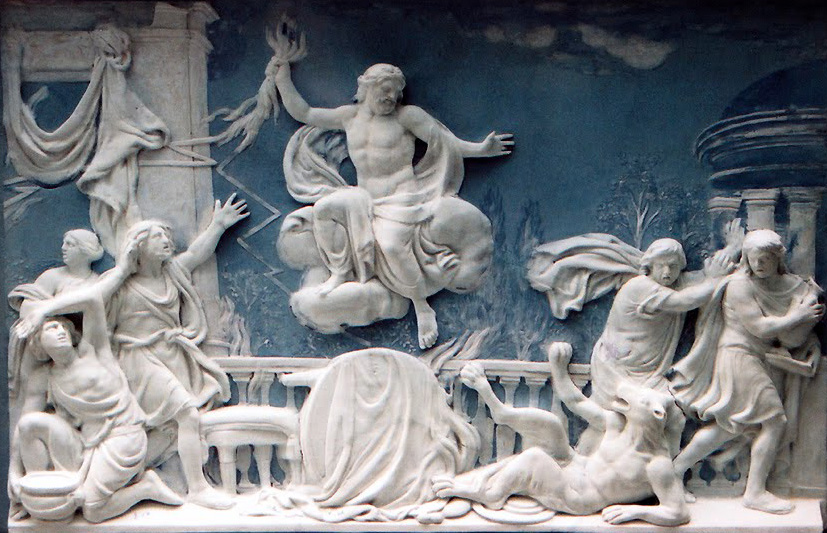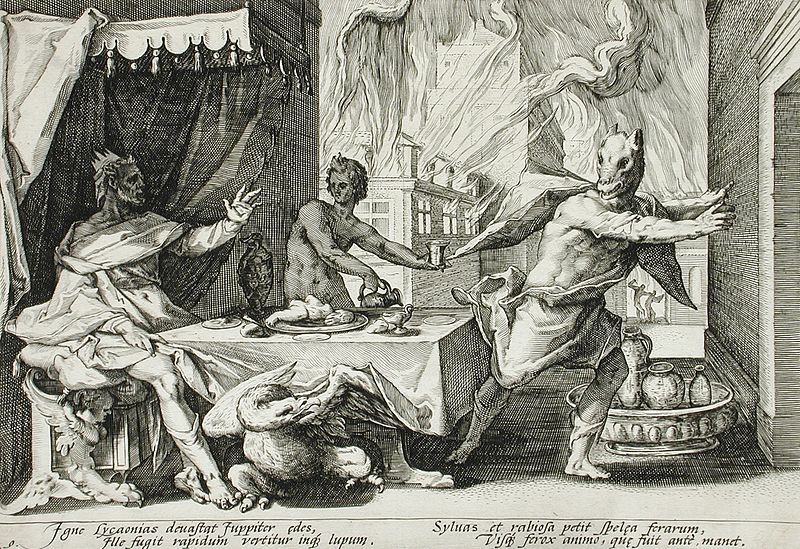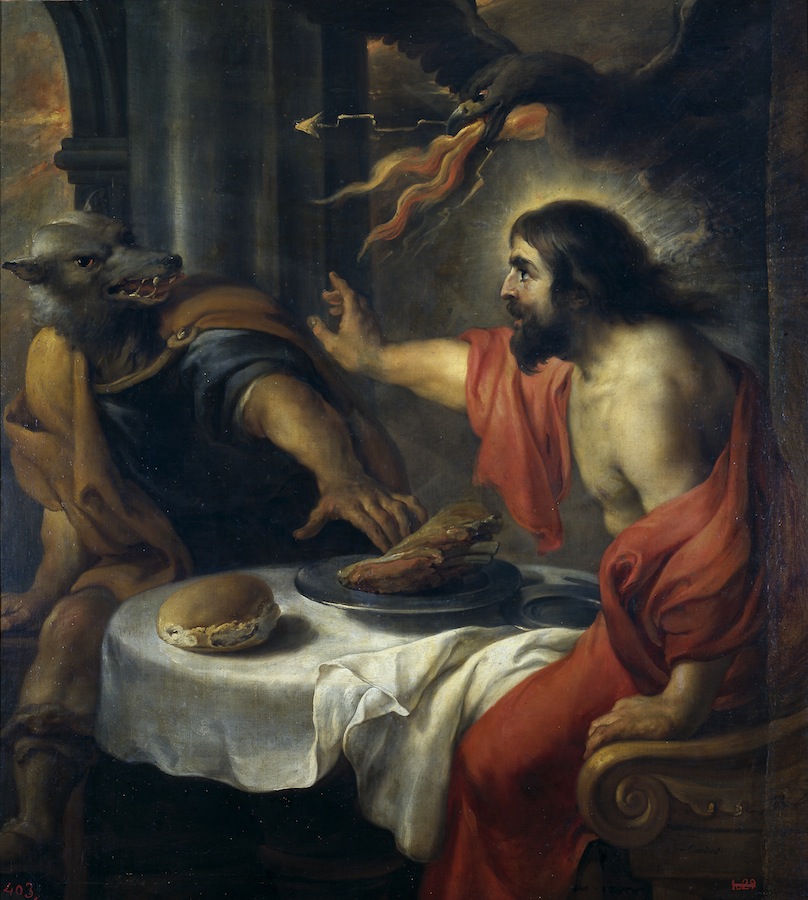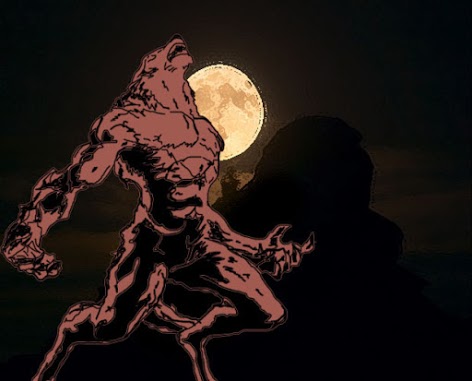Lycaon
The Impious King of Arcadia Transformed into a Wolf in Greek Mythology

In Greek mythology, Lycaon was the first mythical king of Arcadia. He insulted Zeus by serving him human flesh, and as punishment, Zeus transformed him into a wolf.
Lycaon's father was Pelasgus, the mythical ancestor of all Pelasgians, the first inhabitants of Greece. There are various accounts of his mother's name, such as Meliboea or the nymph Cyllene, but she is associated with a water deity. Thus, Lycaon was a child of the earth and water. He founded Lycosura, which is referred to as "the first city that the sun saw." The Lykaia were games held on Mount Lykaion and are said to be the oldest of their kind in Greece. The Arcadians and their ancestors, the Pelasgians, are believed to have predated the moon and lived before the development of agriculture.

Once, Lycaon hosted Zeus at a dinner, and either he or one of his 50 sons served Zeus the flesh of a boy. It is said that by doing this, he wanted to determine if Zeus was truly a god and could distinguish human flesh from that of an animal. Horrified by the cannibalistic meal, Zeus kicked over the table and struck the house with a thunderbolt, killing all 50 of Lycaon's sons. He then transformed Lycaon into a wolf. In another version of the myth, Lycaon challenged Zeus to destroy the entire human race with a great flood, from which only Deucalion and Pyrrha survived.
The boy used by Lycaon in the meal was either a homeless child or Lycaon's son, Nyctimus. In another version of the myth, it was Lycaon's grandson, Arcas, whom Zeus brought back to life to become the ancestor of the Arcadian people, who were named after him. Arcas was the son of Lycaon's daughter, Callisto. Callisto had been transformed into a bear by Artemis because Zeus had fallen in love with her. Some say that Lycaon's act was an attempt to take revenge on Zeus.
Mount Lykaion has always been a place of magic and transformation. Historians believe the mountain was the site of a sacred precinct. Those who entered the precinct were doomed to die within a year. People or animals there had immunity from any prosecution. They also no longer cast a shadow, being considered close to death and effectively dead. It is said that this spot on Mount Lykaion was where Zeus struck the thunderbolt that killed Lycaon's sons, making the area sacred.

According to another story about Mount Lykaion, each year a young man was chosen to go to the shore of a lake beside an oak tree where he would remove his clothes. There, he would swim to the opposite shore of the lake, where he would emerge transformed into a wolf and remain in this form for eight years. Only if he managed to refrain from eating human flesh during this time could he transform back into a human. The Greek traveler and geographer Pausanias (143-176 AD) claimed to have seen in Olympia the statue of an Olympic victor who had survived such a trial at Mount Lykaion.
